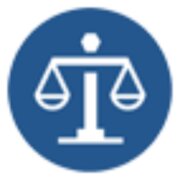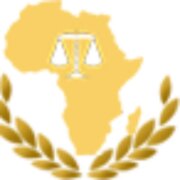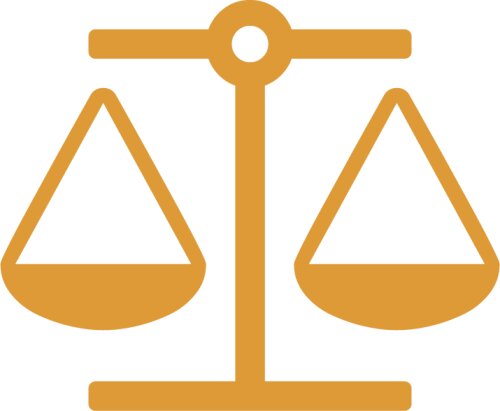Best Telecommunications and Broadcast Lawyers in Kinshasa
Share your needs with us, get contacted by law firms.
Free. Takes 2 min.
List of the best lawyers in Kinshasa, DR Congo
About Telecommunications and Broadcast Law in Kinshasa, DR Congo
The Democratic Republic of Congo (DRC), with Kinshasa as its capital and largest city, has a rapidly evolving telecommunications and broadcast industry. The telecommunications sector in the DRC is governed by the national regulatory authority, Autorité de Régulation de la Poste et des Télécommunications du Congo (ARPTC). The laws are established to regulate, supervise, and control all activities related to broadcasting and telecommunications to maintain fair competition, protect consumer rights, and ensure the provision of high-quality services. Set policies address various areas, including licensing, spectrum allocation, competition policies, and consumer protection.
Why You May Need a Lawyer
Legal assistance is often required when interpreting the complexities of telecommunications and broadcast regulations in Kinshasa and the wider DRC. Individuals or businesses may need a lawyer when applying for broadcasting or telecommunications licenses, dealing with issues of compliance, understanding spectrum allocation processes, handling disputes, and ensuring data protection and privacy rules are upheld. Additionally, legal advice may be necessary to interpret legislative changes and guidelines that can affect these sectors.
Local Laws Overview
The key aspects of local telecommunications and broadcast laws in Kinshasa are chiefly governed by the regulations set by the Autorité de Régulation de la Poste et des Télécommunications du Congo (ARPTC). Key areas include: Licenses: All telecommunications and broadcast services providers must obtain a license to legally operate in the DRC. Spectrum Allocation: Specific rules govern the allocation and management of frequency spectrum for broadcasting and telecommunications. Competition Policies: Legislations are established to prevent anti-competitive behaviors and maintain a healthy business environment. Consumer Protection: Laws exist to protect consumer's rights and interests. Data Protection and Privacy: Regulations guide the collection, storage, and processing of personal data in the broadcast and telecommunications sectors. It is highly advisable to consult a knowledgeable legal expert familiar with local regulations to navigate through these aspects.
Frequently Asked Questions
1. Do I need a license to operate a telecom or broadcasting company in Kinshasa?
Yes, a license from the ARPTC is mandatory for operating a telecommunications or broadcasting company in Kinshasa, DRC.
2. How can I apply for a broadcasting or telecommunications license?
The exact process can be complex and it is recommended to seek legal advice. Typically, it involves submitting an application to the ARPTC along with required documents.
3. What are the laws regarding data protection in the DRC?
The DRC has data protection and privacy laws that regulate how businesses can collect, store, and process consumer data. Failure to comply can result in legal action.
4. What actions can be considered anti-competitive?
Actions that restrict competition like unfair pricing, collusion, and market manipulation are considered anti-competitive and are prohibited.
5. How are disputes resolved in the telecommunication and broadcasting sectors?
Disputes are typically addressed by the ARPTC, however, cases may also be taken to court. Legal representation is advised in either scenario.
6. Can foreign companies operate in the telecommunication and broadcasting sectors in the DRC?
Yes, foreign companies can operate but they must comply with specific regulations including obtaining necessary licenses from ARPTC.
7. Is there any regulation for frequency spectrum allocation?
Yes, the ARPTC oversees the management and distribution of frequency spectrum under the DRC's regulatory framework.
8. Can I appeal if my application for a license is declined?
Yes, there is a provision for appeal in case of license application denial. Legal counsel can guide you in the appeal process.
9. Are telecommunication and broadcasting services VAT-exempt in DRC?
No, Value Added Tax (VAT) applies to these services unless specified exceptions apply.
10. What are the penalties for non-compliance with telecommunications and broadcasting laws?
Penalties for non-compliance can range from fines to revocation of licenses, depending on the level of the breach.
Additional Resources
Key institutions related to telecommunications and broadcasting in the DRC include the ARPTC and Ministry of Post, Telecommunications and New Technologies. These institutions offer various resources and information useful for those seeking legal advice in these sectors.
Next Steps
If you need legal assistance in Telecommunications and Broadcast, it is advisable to engage a local lawyer or legal firm specializing in these areas. They can offer guiding advice, ensuring you stay compliant with the legal requirements and regulations of the DRC.
Lawzana helps you find the best lawyers and law firms in Kinshasa through a curated and pre-screened list of qualified legal professionals. Our platform offers rankings and detailed profiles of attorneys and law firms, allowing you to compare based on practice areas, including Telecommunications and Broadcast, experience, and client feedback.
Each profile includes a description of the firm's areas of practice, client reviews, team members and partners, year of establishment, spoken languages, office locations, contact information, social media presence, and any published articles or resources. Most firms on our platform speak English and are experienced in both local and international legal matters.
Get a quote from top-rated law firms in Kinshasa, DR Congo — quickly, securely, and without unnecessary hassle.
Disclaimer:
The information provided on this page is for general informational purposes only and does not constitute legal advice. While we strive to ensure the accuracy and relevance of the content, legal information may change over time, and interpretations of the law can vary. You should always consult with a qualified legal professional for advice specific to your situation.
We disclaim all liability for actions taken or not taken based on the content of this page. If you believe any information is incorrect or outdated, please contact us, and we will review and update it where appropriate.











